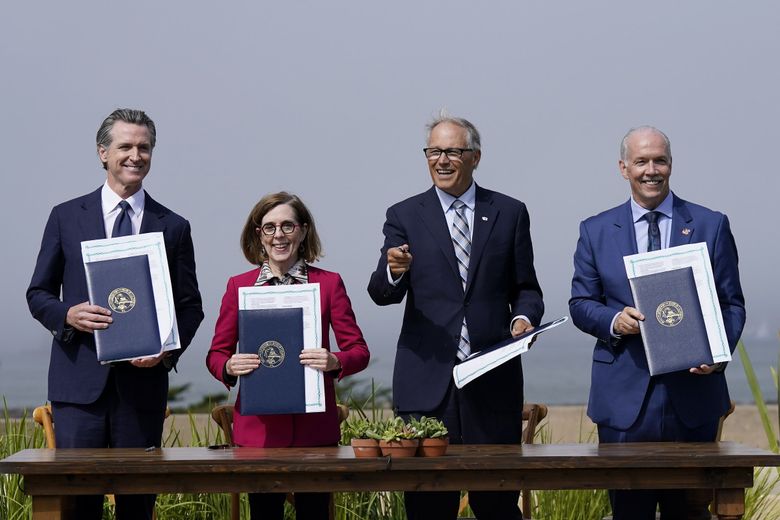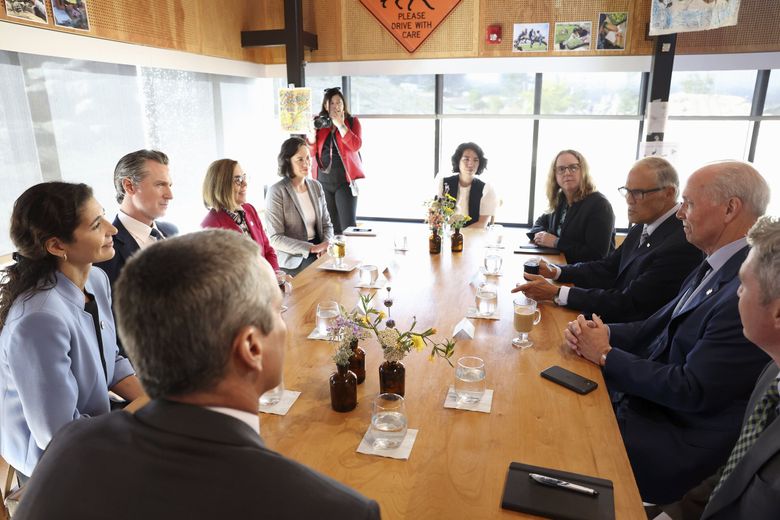Gov. Jay Inslee joined other Pacific Coast leaders in San Francisco on Thursday to collectively reaffirm their commitment to the fight against climate change.
The West Coast, they said, with its progressive policies and abundance of hydropower, is positioned to spearhead the country’s first zero-carbon economy through the popularization of electric vehicles and the implementation of forthcoming carbon markets.
“The Pacific Coast leads on virtually everything in social and economic development, and we are yet again leading the world and the nation when it comes to the development of a clean energy economy,” Inslee said on Thursday.
He was joined by California Gov. Gavin Newsom, Oregon Gov. Kate Brown and British Columbia Premier John Horgan. On Thursday, the four renewed an agreement last signed in 2016 to jointly pursue decarbonization, clean energy, green jobs, environmental justice and disaster preparedness.
This includes, among other things, policy efforts to increase charging stations along the West Coast, develop a power grid that doesn’t rely on fossil fuels and improve the region’s defenses against heat waves, drought and wildfire.
Washington is required by law to eliminate or offset all of its greenhouse gas emissions by 2050. California aims to do so by 2045, while San Francisco has pledged it will achieve net zero carbon dioxide emissions by 2040. San Francisco, Seattle, Portland, Los Angeles and Vancouver, B.C., are also part of this group, called the Pacific Coast Collaborative.
Other efforts to increase electric vehicles and eliminate gasoline-powered cars are underway.
Following California’s decision to ban the sale of new gas-powered vehicles by 2035, Inslee announced in August that Washington would do the same, though specific regulations are forthcoming.
In Washington, a suite of climate policy will take effect next year — some as early as January — including a cap-and-invest program that will put a price on carbon emissions, a fuel standard that will reduce the carbon intensity of transportation fuels and a policy framework that will require electric utilizes to phase out coal.
Inslee said on Thursday that the Pacific Coast Collaborative can continue its leadership by building a charging corridor for electric vehicles along Interstate 5, and by considering the merger of state-level cap-and-invest programs one day to expand the market.
He added that the Pacific Coast is poised to capitalize on federal grant money provided by the Inflation Reduction Act, a massive spending bill passed by Congress in August that will pour an unprecedented $375 billion over the next decade into fighting climate change.
“We at the Pacific Coast know that we can pedal faster,” he said.

